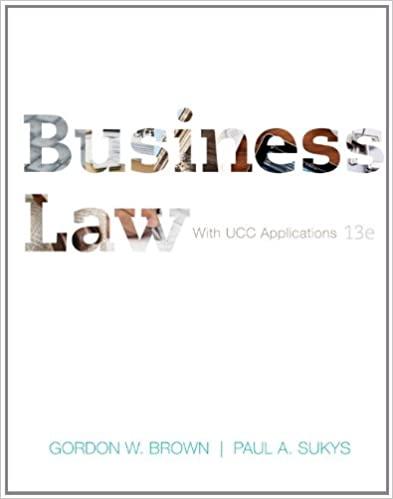Cyberian Enterprises and BrandAid Marketing Corporation entered a deal under which Cyberian was supposed to purchase $21
Question:
Cyberian Enterprises and BrandAid Marketing Corporation entered a deal under which Cyberian was supposed to purchase $21 million in Brand-Aid’s stock. Cyberian, however, did not have the funds available to make the actual purchase, a fact that was concealed by Cyberian representatives. When BrandAid discovered the lie, it filed a lawsuit against Cyberian for fraud, breach of contract, and breaking federal securities law. Cyberian brought a countersuit against BrandAid for fraud because BrandAid had apparently failed to tell Cyberian about its own financial difficulties. However, BrandAid’s financial problems were on file with the Securities and Exchange Commission (SEC).
When the case went to District Court, the judge dismissed the case because, citing the doctrine of in pari delicto, he stated that both parties were at equal fault in concealing their financial difficulties.
The case then went to the Second Circuit Court of Appeals, which decided that the trial court had made a mistake in dismissing the case. Why did the appeals court overturn the decision of the trial court? Explain. BrandAid Marketing Corp. v. Biss, 05-5243-cv (2d U.S. Cir. Ct. of App.). (See also Beth Bar, “Civil Practice: Finding of Equal Fault Is Overturned,” The National Law Journal, September 11, 2006, p. 13.)
Step by Step Answer:

Business Law With UCC Applications
ISBN: 9780073524955
13th Edition
Authors: Gordon Brown, Paul Sukys





